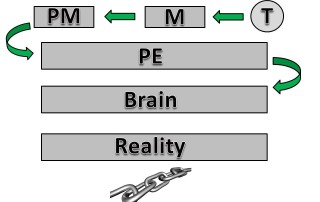VLOG #1 Completing the Trigger Chain Exercise
How to Change The Past
One of the most frequently used lines of false consolation that I hear is “you can’t change the past”. Usually this bit of indispensable wisdom is offered as a word of advice when someone is describing the impact of some negative event from their history, something that they wish had never happened and often something that continues to affect them to this day. Of course, this advice and apparent statement of the obvious is rarely helpful, which is not surprising if we look at the gist of this rejoinder. Let’s say you run breathless to the neighbour’s house, pounding on the door. They open the door and ask what’s going on. You tell them that there’s been a terrible accident and you need them to call an ambulance because you think your brother is dead. I don’t think anyone would feel justified or even attempt to rationalize a response such as, “Well, it’s in the past. You can’t change the past. You just have to let it go and get over it.” We would expect that person to offer help, to repair whatever damage had been done, within reason and their capability. Of course we wouldn’t expect them to take […]
Bipolar Disorder, Schizophrenia, Autism, Depression, ADHD: Common Roots Discovered!!
From Shame to Compassion: A How-To Guide to Transforming Pain into Progress
The purpose of this post is to introduce a new way of thinking about problematic behavior. Many of us struggle to curb thoughts or behaviors that are ineffective at best and destructively corrosive at worst. We try and try again, only to meet with failure. Most of us throw our hands up and either set about resigning ourselves to the seemingly inevitable disappointing outcome of our existence, or continue to push against the same brick wall, using the same approach that has already proven so ineffective. This is the cycle of pain. Kathryn Schulz, journalist and author spoke at a TED conference about the experience of being wrong. She asked participants in the audience to describe how it felt to be wrong. Predictable answers ensued, focusing on the theme of embarrassment or similar emotions. She then pointed out that this was the experience of discovering that you have made a mistake, not the experience of actually making the mistake. She stated that the actual act of being wrong carries with it no emotion of its own; it only carries the emotion and meaning that we give to it. I would take Schulz’s idea a step further and point out that […]





Recent Comments